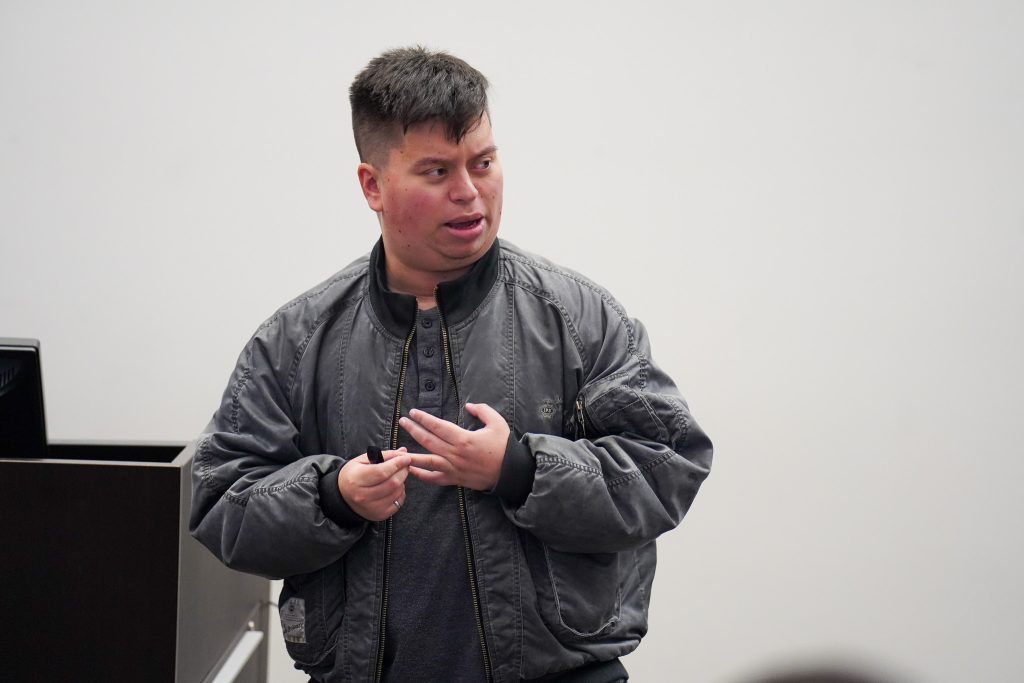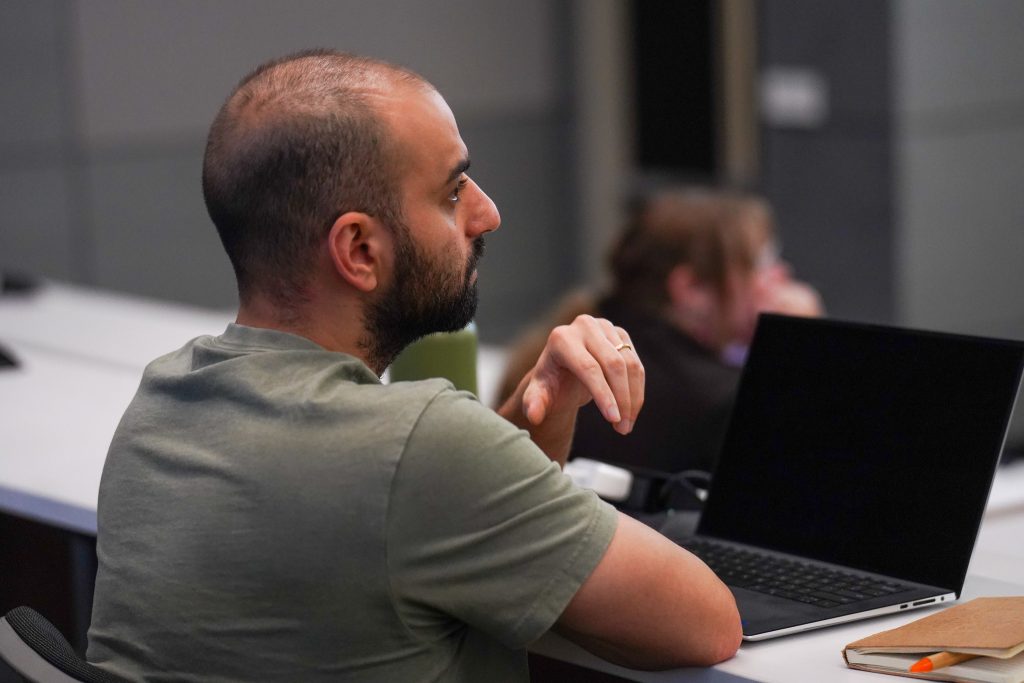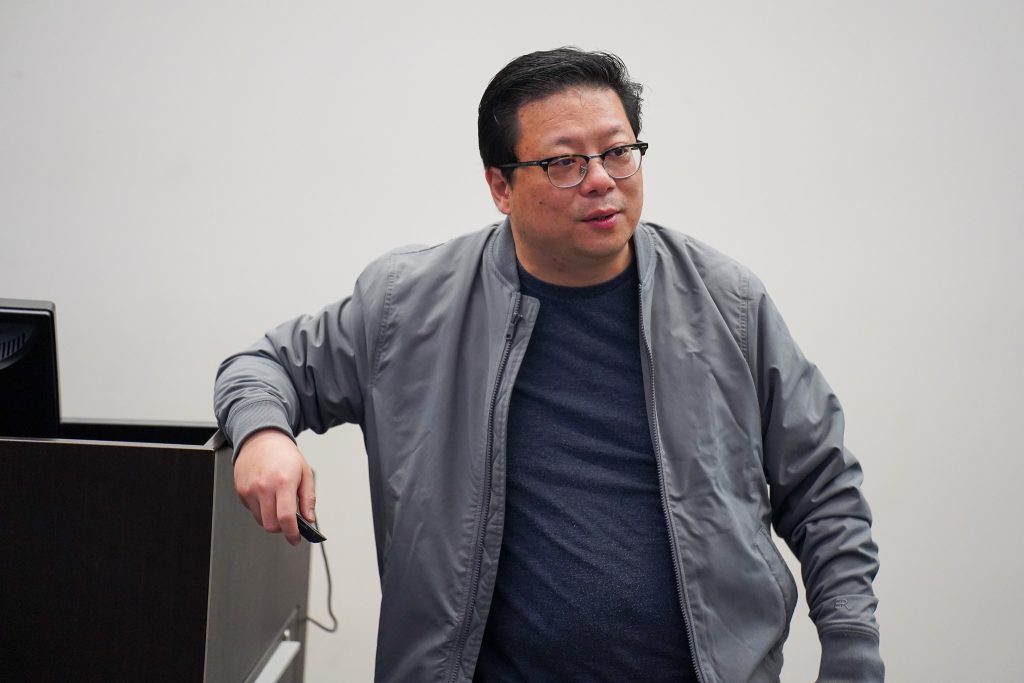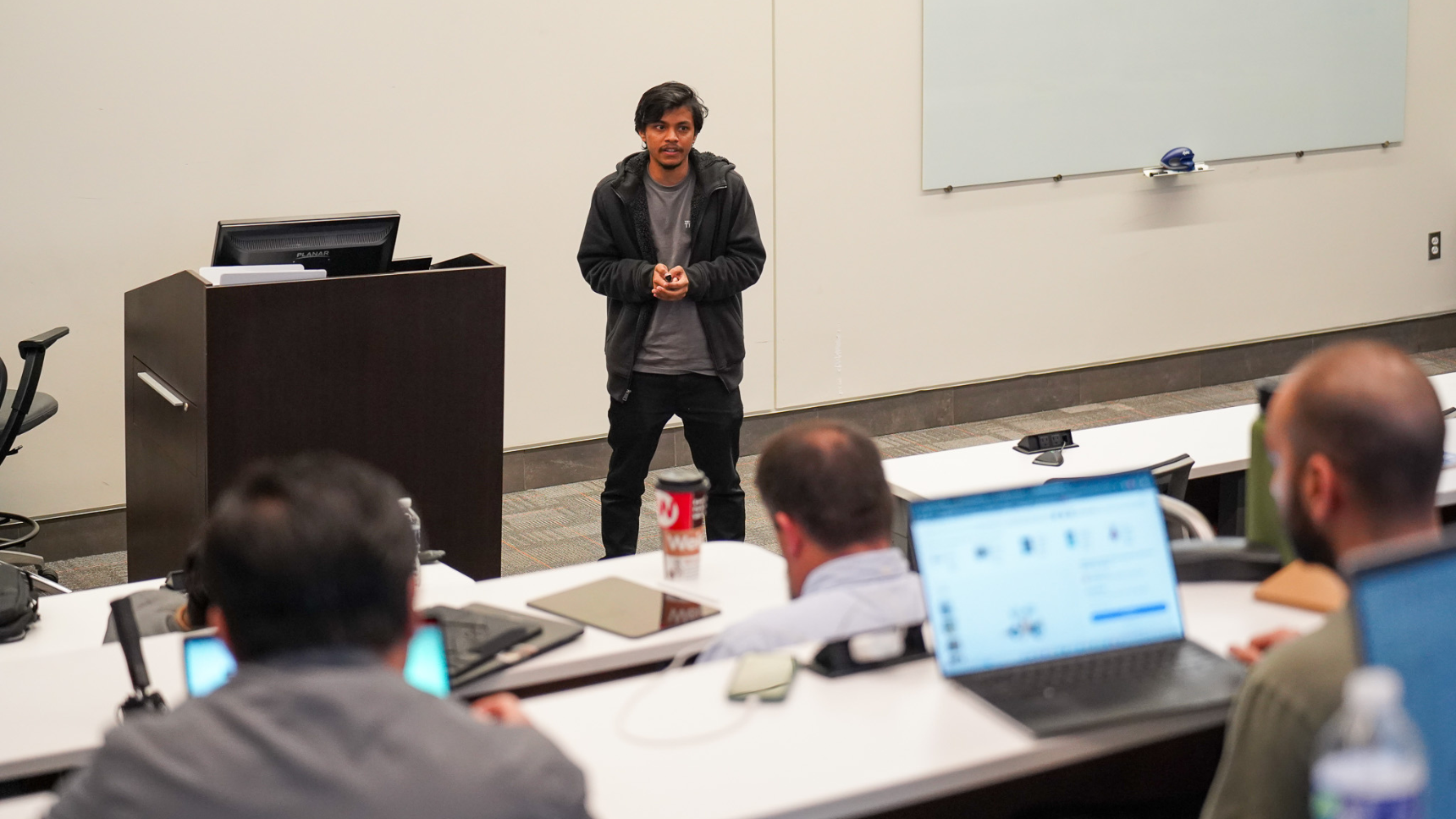
I-Corps program concludes with commercialization strategies
The regional I-Corps program is facilitated by the Office of Research, Innovation & Economic Development at UTK.
When bringing a novel concept from a laboratory to market, one of the biggest challenges is catering the highly-technical “innovation pitch” to a language that the customer can understand. That’s what the National Science Foundation’s “Innovation Corps” program, also known as I-Corps, is about – finding why the innovation matters to the customer.
Rob Coleman, the Director of Entrepreneurship & New Ventures at the Office of Research, Innovation & Economic Development at the University of Tennessee, Knoxville (UTK) has pioneered the program for the past two years. His office is tasked with helping top-level researchers bring more of their findings to market through various applications. I-Corps is a key tool in doing that. The quick and intense program runs for three-weeks, tasking innovators with doing 20+ customer discovery interviews in order to secure a grant to assist in commercialization strategy.
This year, Marc Nabhan, the new Assistant Director, Entrepreneurship & New Ventures led the closing session. Each innovator spent 5-10 minutes sharing their discoveries from the customer calls. Nabhan then prompted them with some additional questions and opportunities to think about.
Alec Readel presented his company, Applied 2D first. He predicted that manufacturers of plate heat exchangers will purchase his anti-corrosive coatings for their heat transfer plates because it will improve performance and extend life of products. One of the key questions he got from customer discovery was – how long does it last? And, where does his innovation fit within the manufacturing process?
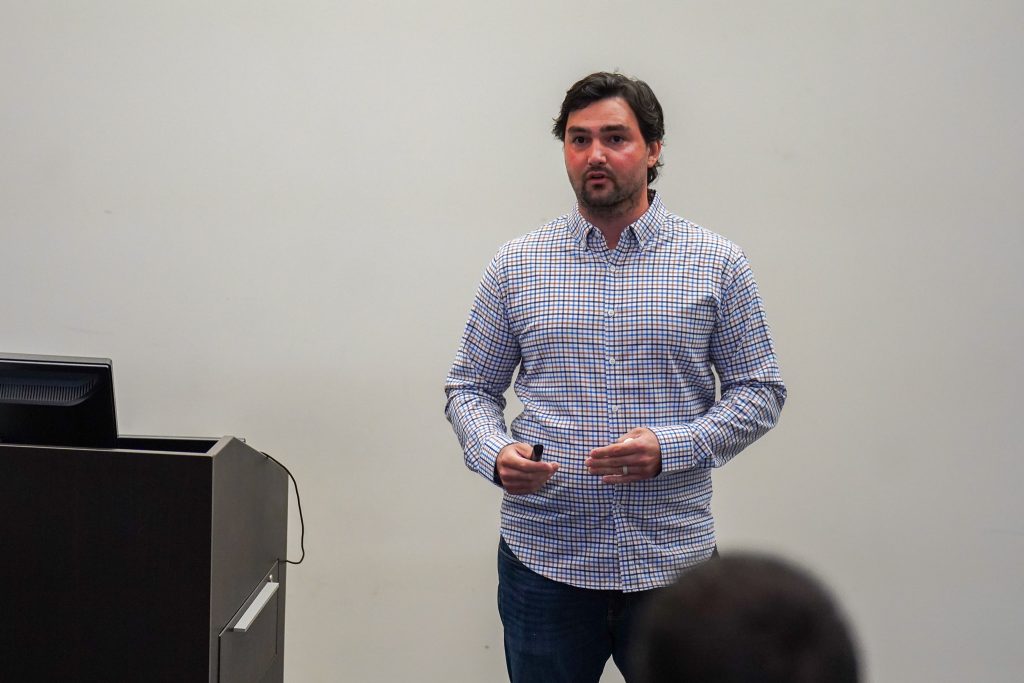
Readel is an interesting participant for the I-corps program, Nabhan highlighted. He is not from the traditional academic system. Instead, Readel spent the last several years manufacturing graphene after completing his Associate’s Degree. He discovered this method for anti-corrosive coatings and left his full-time job to pursue a start-up.
Dr. Dustin Crouch was also a participant in the I-Corps program. He spent the last three weeks tackling customer discovery, while also preparing to pitch at the second annual “Chancellor’s Innovation Fund” at UTK. His company, EndoLimb is a skin-covered orthopedic solution that targets patients with thumb amputations.
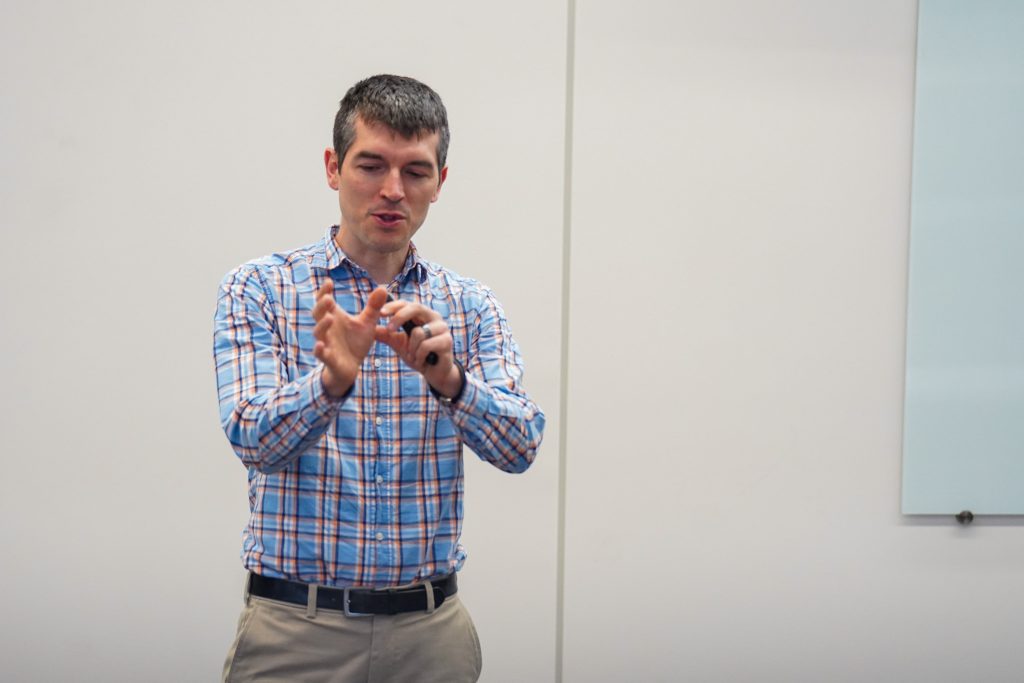
“There’s a handful of hand surgeons who are ‘superstars’ in their field,” Crouch said. “All the other orthopedic surgeons follow their lead when it comes to procedures and best-practices. So, I learned that we need to get in with those superstars and convince them to promote our product when we go to market.”
Crouch mentioned, both at the Chancellor’s Innovation Fund Competition and during I-Corps that FDA approval on the innovation could take until 2031. In the meantime, Crouch is tasked with looking for Small Business Innovation Research (SBIR) grants, private investment, and University support to keep the research and development of this novel concept alive.
Some of the other inventios included an AI-powered app designed for students to increase academic and mental support in schools. The company, called EchoSpark was presented by Md Alamgir Hossain. He believes it could be a vital tool for helping school counselors, teachers, and parents remain in-the-loop when it comes to potential bullying.
Ryan Ginder presented his company, Team Glass Act, which represents a solution for fiber waste.
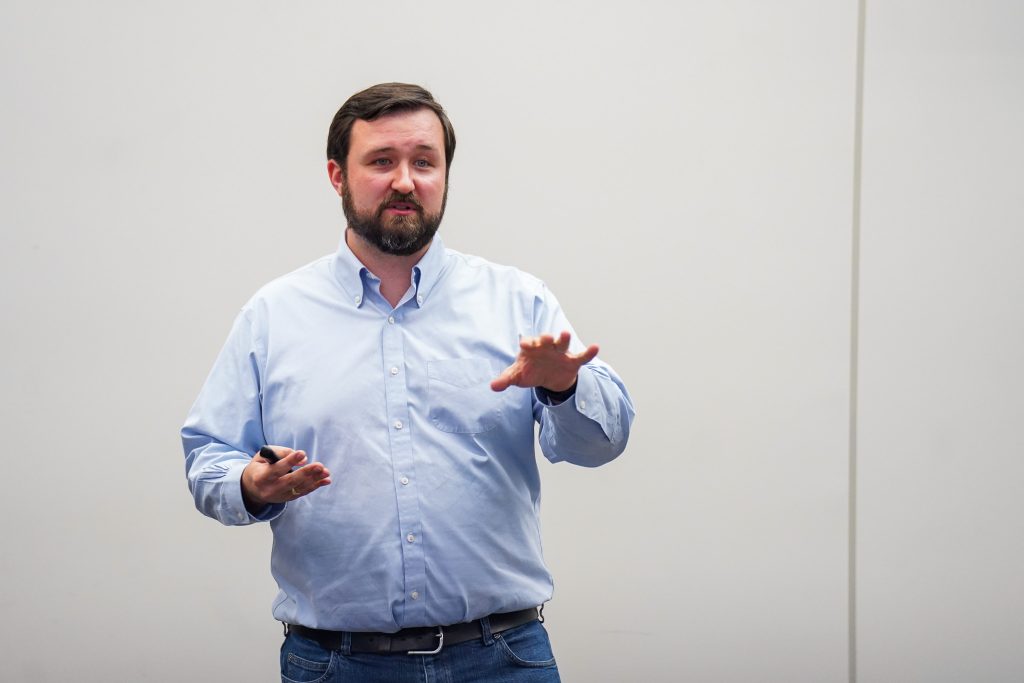
“Think of us like the hot dog of composites; we repurpose fiber trimmings to make new technical yarns for advanced composites,” he said. Ginder has a busy last three weeks with the customer discovery, which got cut a bit short due to his baby arriving earlier than expected. His daughter has been in the NICU, and Ginder took a few hours away from the hospital to present his findings.
Hugh Shortt has invented an interesting technology that applies multi-use complex concentrated alloys (CCAs) to industries with heavy machinery for corrosion resistance. He completed 20 customer discovery calls, but is still seeking the perfect market-fit for the technology.
Kuntal De, the Chief Executive Officer and Founder of PAN Biologists developed a cutting-edge biologics solutions that target the signaling pathways for cancer therapies. He said it offers highly specific treatments with reduced side-effects, as opposed to traditional treatments like chemotherapies and radiation treatments.
“For us, trust is one of the biggest factors our customers are looking for,” he said, acknowledging that his team has to demonstrate their trustworthiness overtime.
Peyman Zandifaez described a thermal energy storage system that assists with heat management, energy storage, and building efficiency. Through the customer discovery process, he found that construction companies and builders are the decision makers when it comes to incorporating new, sustainable materials.
And, last but not least Steven Newby presented his company, M-Bot BioSystem Lab LLC. One of the first things he did during the course of I-Corps was change his company name “off the bat” to appeal to a more specific customer base. His innovation is a biocompatible, biodegradable, and nano-tunable resin bio-ink that can work with multiple resin printers on the market.
One of Newby’s biggest advantages when it comes to his invention is his ability to test it in real-time. He owns veterinary clinics in Clinton and Norris and is on faculty at the UTK College of Veterinary Medicine. Through these avenues, he is able to test his invention in real time.
Like what you've read?
Forward to a friend!

